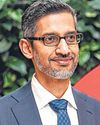Prøve GULL - Gratis
Deregulation as a tool to discipline the State
Hindustan Times Bengaluru
|November 19, 2025
Deregulation is among the most consequential administrative reforms undertaken by the State. India’s ongoing efforts to simplify procedures, reduce paperwork, and replace imprisonment ‘with monetary penalties marka decisive shiftin ‘governance, enhancing predictability, lowering transaction costs, and signalling trust in citizens and enterprises. The Jan Vishwas (Amendment of Provisions) Act, 2023 and the Jan Vishwas (Amendment of Provisions) Bill, 2025 embody this transition from a permission-and-penalty regime to a trust-based government. Yet, beyond these efficiency gains lies a larger question: Do they fulfil the true purpose of deregulation? With the Prime Minister calling for deeper reforms and announcinga High-Level Committee on Deregulation, it is evident that India must now move from administrative simplification toamore fundamental rethinking of whyand how the State regulates.
‘The Indian State has often treated deregulation asa form of administrative housekeeping. Redundant provisions are deleted, fines rationalised, and digital portals introduced to replace manual processes. While these measures are laudable, they only modify the form of regulation. The deeper question, the substance of regulation, remains largely untouched.
Born ofa socialist ethos, India’s regulatory mindset has treated the State as master rather than midwife to enterprise. Control became the default instinct, regulation a tool to discipline rather than to enable. The citizen or firm is treated as a subject whose conduct must be permitted, monitored, or corrected. This logic pervades even modern statutes, producing a culture of compliance without autonomy. The outcome is an administratively lighter but conceptually unchanged State, one that still imagines order as something to be imposed rather than co-created.
True deregulation requires dismantling this epistemology of control. It involves recognising that the purpose of regulation is not to extend State authority but to structure freedom. Itis to define boundaries within which enterprise and innovation can safely and predictably occur.
Aradical approach must begin from first principles, examining the teleology of regulation and the moral assumptions embedded in law. Three questions are foundational.
Denne historien er fra November 19, 2025-utgaven av Hindustan Times Bengaluru.
Abonner på Magzter GOLD for å få tilgang til tusenvis av kuraterte premiumhistorier og over 9000 magasiner og aviser.
Allerede abonnent? Logg på
FLERE HISTORIER FRA Hindustan Times Bengaluru
Hindustan Times Bengaluru
Deregulation as a tool to discipline the State
Deregulation is among the most consequential administrative reforms undertaken by the State. India’s ongoing efforts to simplify procedures, reduce paperwork, and replace imprisonment ‘with monetary penalties marka decisive shiftin ‘governance, enhancing predictability, lowering transaction costs, and signalling trust in citizens and enterprises. The Jan Vishwas (Amendment of Provisions) Act, 2023 and the Jan Vishwas (Amendment of Provisions) Bill, 2025 embody this transition from a permission-and-penalty regime to a trust-based government. Yet, beyond these efficiency gains lies a larger question: Do they fulfil the true purpose of deregulation? With the Prime Minister calling for deeper reforms and announcinga High-Level Committee on Deregulation, it is evident that India must now move from administrative simplification toamore fundamental rethinking of whyand how the State regulates.
3 mins
November 19, 2025
Hindustan Times Bengaluru
CHARGES FRAMED AGAINST HARDIK IN ‘18 PATIDAR STIR
An Ahmedabad court on Tuesday paved the way for Bharatiya Janata Party (BJP) MLA from Viramnagar Hardik Patel’s trial after it framed charges against him in a 2018 rioting case pertaining to the Patidar reservation protest in Gujarat, people familiar with the matter said.
1 min
November 19, 2025
Hindustan Times Bengaluru
'No innocent Kashmiri should face suspicion'
{ SAYS J&K CM
1 min
November 19, 2025
Hindustan Times Bengaluru
WOMAN'S HEADLESS, NAKED BODY FOUND NEAR RAIL TRACKS
The decapitated body of a woman was found near a railway track in Uttar Pradesh’s Ballia district on Tuesday, police said.
1 min
November 19, 2025
Hindustan Times Bengaluru
Dreaded fighter handpicked core of rebels’ striking force
\"Hidma’s terror has ended, peace is returning to Bastar,\" Chhattisgarh chief minister Vishnu Deo Sai wrote in a social media post on Tuesday, while Inspector General of Police, Bastar Range, Sundarraj P, added that the death of 50-year-old Madvi Hidma marked “one of the most decisive
1 min
November 19, 2025
Hindustan Times Bengaluru
In new Bhutan, tradition & progress march in step
Against the backdrop of high youth migration, Thimphu seeks to reinvent while keeping its traditional core intact
4 mins
November 19, 2025
Hindustan Times Bengaluru
How a tribal boy rose to become dreaded Maoist
Rise and fall of Madvi Hidma Commander's death is a decisive blow to the Maoist leadership
4 mins
November 19, 2025
Hindustan Times Bengaluru
Jaishankar asserts India’s right to defend itself against terror
India has the right to defend its people against terrorism and it will exercise it, external affairs minister S Jaishankar said on Tuesday at the SCO Council of Heads of Government meeting in Moscow, adding that New Delhi had demonstrated its resolve to fight terror, a likely reference to Operation Sindoor against Pakistan in May after the Pahalgam terror strike.
3 mins
November 19, 2025
Hindustan Times Bengaluru
Alarm grows on ultra-processed food popularity
Ultra-processed foods are directly linked to increased health risks for 12 diseases, including type 2 diabetes, obesity, depression and heart, kidney and gastrointestinal conditions, according to a major series published Tuesday in The Lancet, which also found that diets are now full of such foods, replacing fresh and minimally processed, traditional home-cooked meals globally.
3 mins
November 19, 2025

Hindustan Times Bengaluru
No firm is immune if AI bubble bursts: Google CEO
Alphabet Chief Executive Sundar Pichai said no company would be unscathed if the artificial intelligence boom collapses, as soaring valuations and heavy investment in the sector fuel concerns of a bubble.
2 mins
November 19, 2025
Listen
Translate
Change font size
